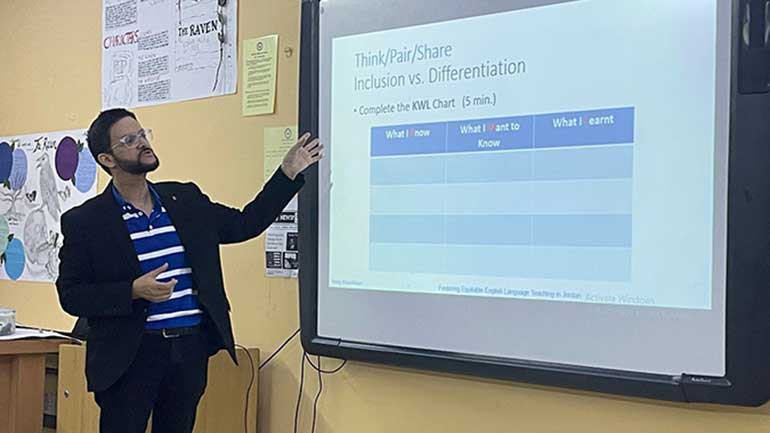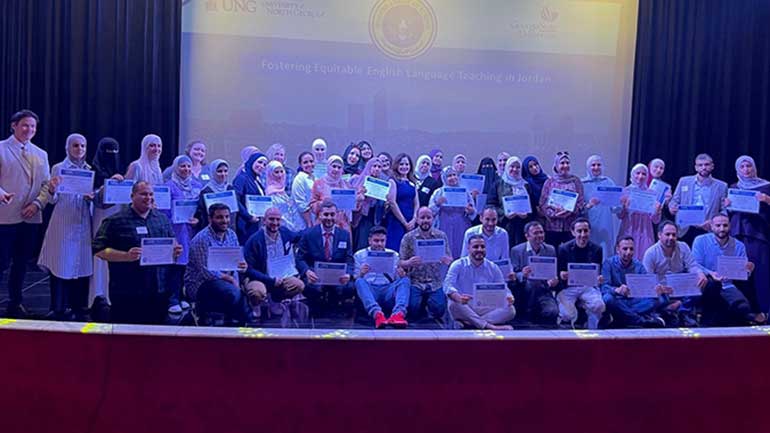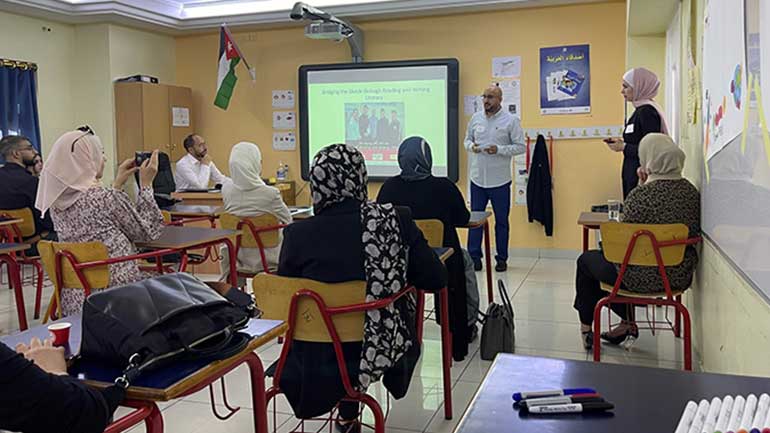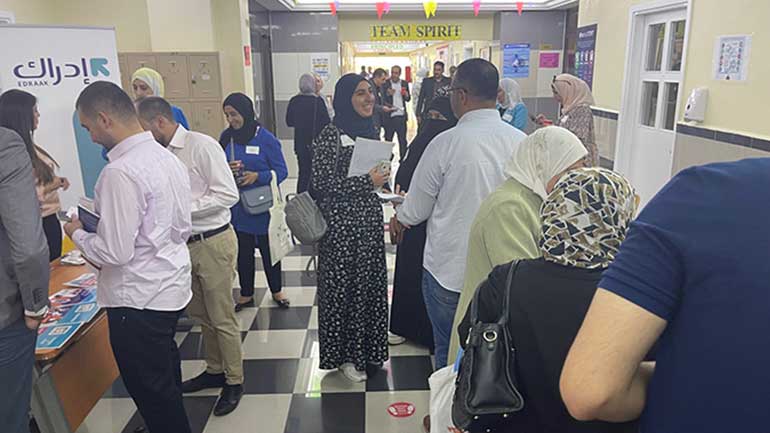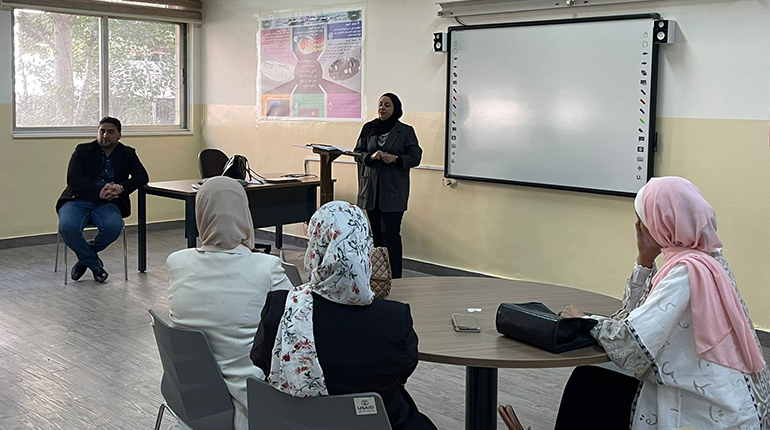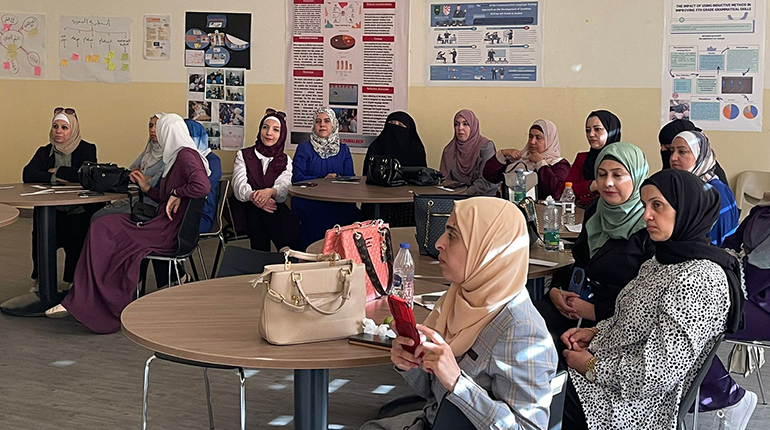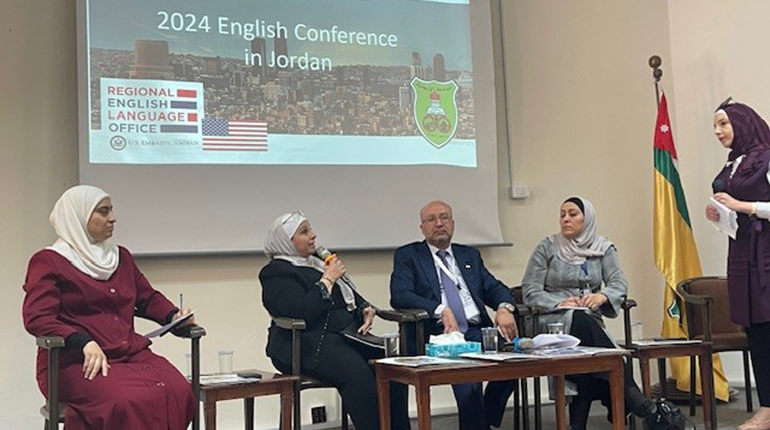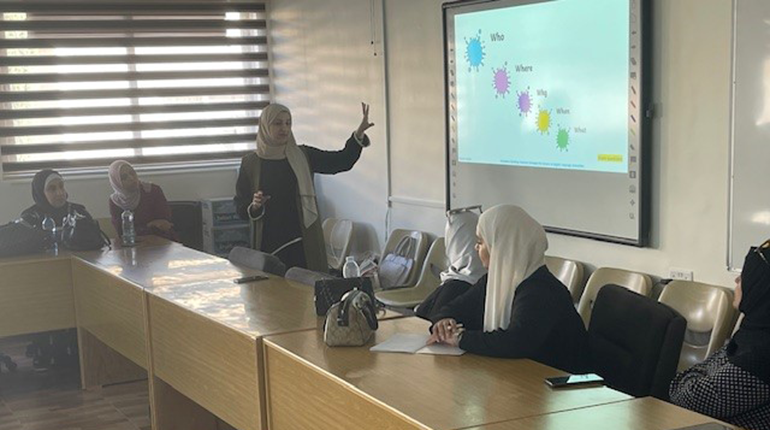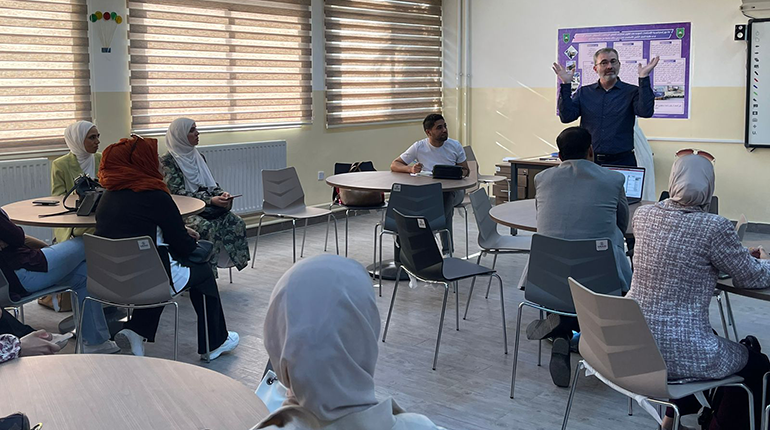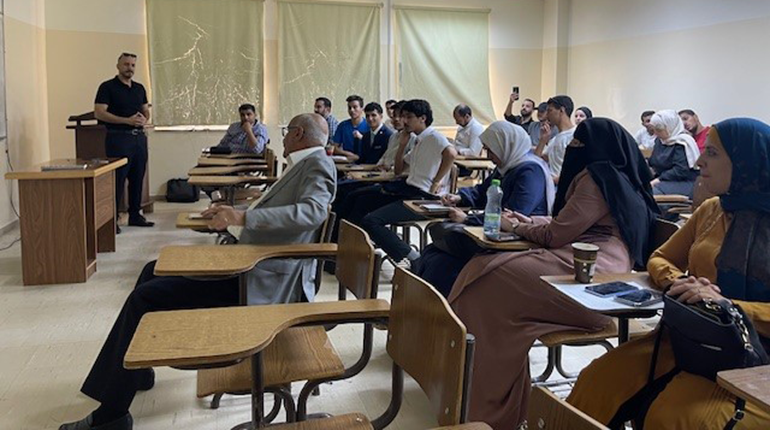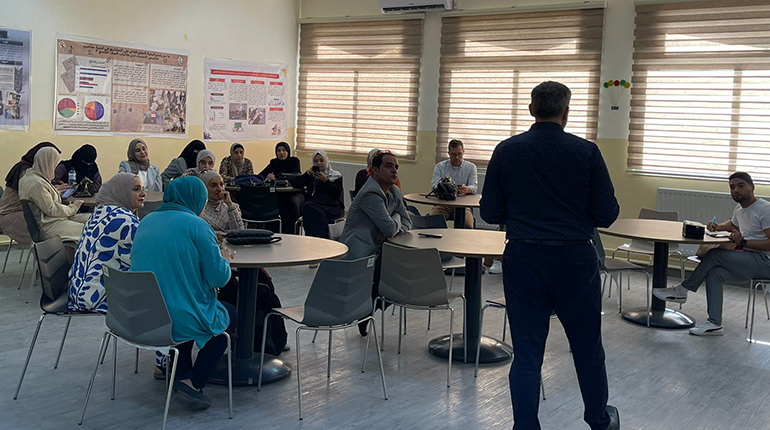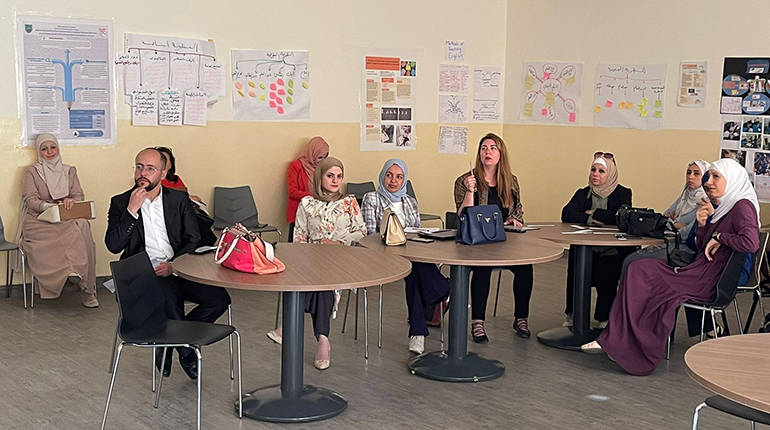English Language Conference in Jordan
Inspiring Instruction and Shaping Futures: 3rd Annual English Language Conference for Jordanian English Teachers
June 15 & 17, 2025
In collaboration with Queen Rania Teacher Academy, Deanship of Scientific Research and Innovation at Al-Balqa Applied University, Mutah University, Washington University in Saint Louis, Georgia State University, and the University of North Georgia, the 3rd Annual English Language Conference invites K-12 educators, school administrators, university educators, university students, and researchers to share and showcase effective classroom practices or research studies. Those who attend the conference will receive a conference certificate.

Registration for the 2025 English Language Conference is now closed and are no longer accepting proposals. Notification of accepted proposals will be sent by Sunday, May 25, 2025.
We truly appreciate the enthusiasm and look forward to welcoming you at the 2026 Conference in Jordan!
2025 English Language Conference Information
Conference Details
- Sunday, June 15, 2025
- Tuesday, June 17, 2025
- Noon - 4 p.m.
- Mutah University in Karak
Conference Cost
The conference is free.
Conference Language
English
Conference Organizers
- Dr. Juman Al Bukhari, Senior Consultant-Learning and Development, Washington University in St. Louis
- Dr. Shadi Al Kholi, English Programs Lead, Queen Rania Teacher Academy
- Dr. James Badger, Professor, College of Education, University of North Georgia
- Dr. Khetam Shraideh, Asst. Professor, Translation Studies, English Dept., Al-Balqa Applied University
Proposal Deadline and Decision Notification
The proposal submission deadline was Thursday, May 15, 2025. We are no longer accepting new submissions.
Notification of accepted proposals will be sent by Sunday, May 25, 2025.
Proposal Details
Proposals should focus on effective practices regarding the teaching of English to speakers of Arabic. This year, we are especially interested in proposals concerning active learning strategies, teaching grammar communicatively, using AI to effectively plan and teach, developing students’ writing skills, integrating authentic assessments, differentiating instruction, implementing the “4 Cs” of 21st-century learning, including learners with disabilities in the classroom, and incorporating meaningful instruments to assess students’ speaking and writing skills that include rubrics. However, proposals on any topic appropriate to the conference focus will be considered that advance English language teachers’ knowledge and positively impact their classroom instruction. Explore our list of suggested topics below.
Presenters will have 40 minutes in total and should dedicate 20 to 25 minutes to the initial delivery, reserving the remaining 15 to 20 minutes for audience questions.
Submission
To submit your proposal, please send an abstract (150-200 words) and a short biographical sketch (75-100 words). Deadline for proposal submissions is Thursday, May 15, 2025.
Proposals submitted in Arabic will not be reviewed. Proposals must be submitted in English.
Proposal
A proposal describing an innovative teaching strategy should provide a detailed explanation of the method or approach, its teaching quality, innovative practices for teaching English to speakers of Arabic, and any additional factors that enhance student learning outcomes.
A proposal describing a research project should include a clear statement of the problem, an explanation of the research methods, a summary of the findings, a description of your contributions, and an explanation of its value to the conference audience.
Learn More About the Conference Partners
